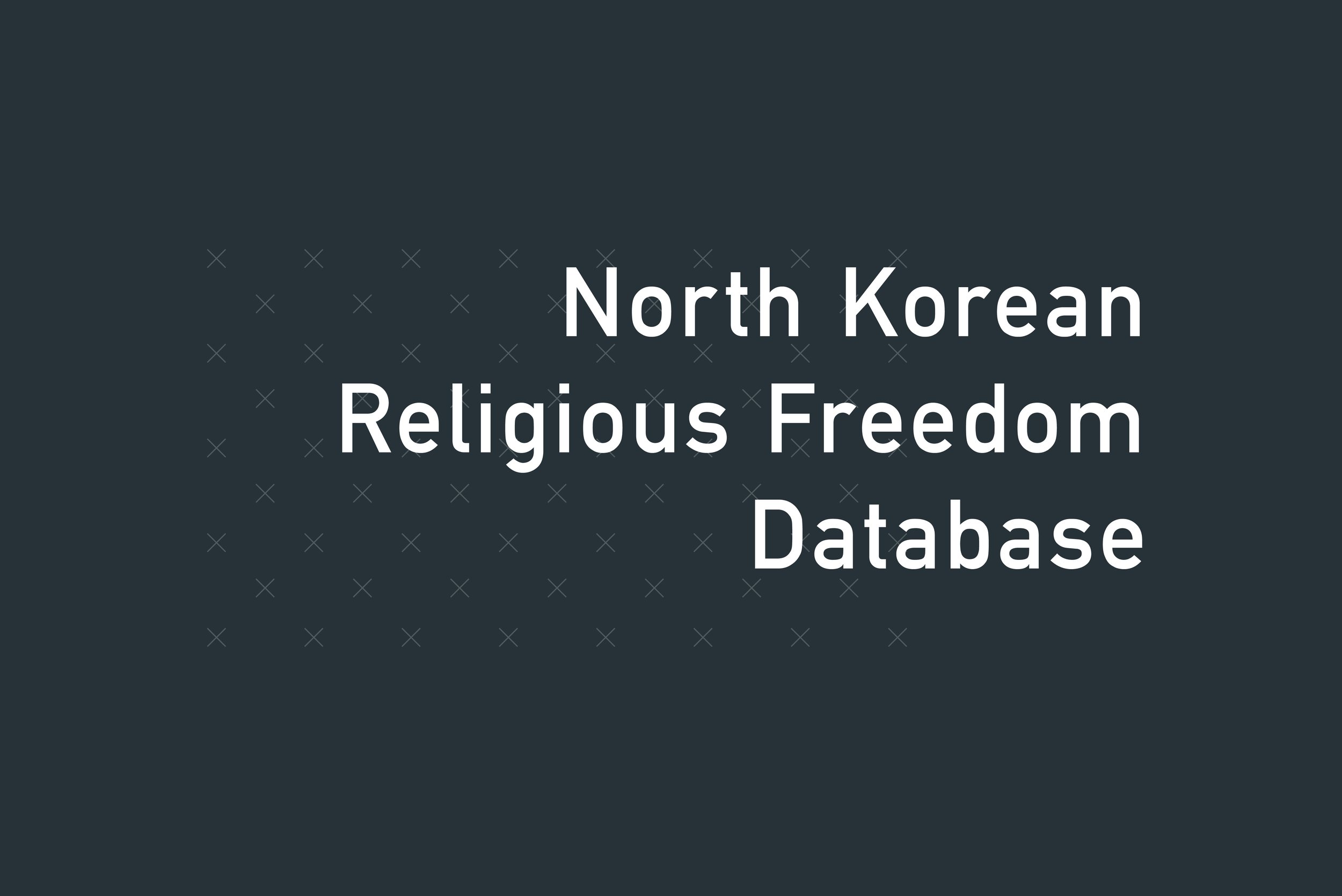North Korean Religious Freedom Database
Timeframe: 2019 - 2022
Summary
Korea Future is investigating and identifying agents of the Workers’ Party of Korea responsible for gross violations of international human rights law that target religious minorities.Our investigators have independently documented 195 perpetrators responsible for over 1000 violations of international law involving 517 victims in 127 locations.Our extensive archive of selected evidence can be accessed and downloaded by legal practitioners, civil society organisations, researchers, and journalists at the North Korean Religious Freedom Database.Background
The Workers’ Party of Korea is responsible for the absolute denial of the right to freedom of thought, conscience, and religion and the persecution of religious minorities on a grand scale.Tens of thousands of persons with religious identities have been deprived of their liberty and detained in a vast network of closed institutions; repeatedly tortured and starved; held in overcrowded cells without access to sunlight or ventilation; denied their right to a fair trial; fallen victim to pervasive sexual violence, including the rape of women prisoners; experienced unlawful forced labour; and suffered death resulting from inhumane conditions of detention and extrajudicial execution, among other egregious violations.There is no path toward justice for victims inside North Korea. Consequently, the pursuit of justice for victims must take place outside of the country.Korea Future investigators have conducted detailed interviews with over 200 survivors, perpetrators, and witnesses; documented tens-of-thousands of pages of testimony; and sourced internal documents generated by the Workers’ Party of Korea that demonstrate state intent to eradicate both religion and religious minorities in North Korea. In many cases, our evidence links named perpetrators to specific cases of human rights violations and their victims. In some cases, we are able to establish further links to organisational structures, leaders, and state documents that demonstrate planning, coordination, and intent in the persecution of religious groups. We intend our evidence to be used to accelerate, promote, and support national and international justice institutions pursuing accountability through a range of initiatives, including investigations, targeted human rights sanctions, and prosecutions. Featured publications
Investigation
Our methods of investigation have been developed with and comprehensively reviewed by legal experts with international prosecutorial and analytical experience.We begin our investigations by interviewing displaced survivors, perpetrators, and witnesses who either experienced, are responsible for, or observed violations of international human rights law. Sites of human rights violations are geolocated and our investigators work with interviewees to map the internal architectures of penal facilities. Select facilities are then digitally modelled. Documents related to organisational structures and materials that identify key perpetrators are sourced from inside North Korea.Our evidence is thoroughly analysed to corroborate and verify cases and to establish whether violations of international human rights law took place. To preserve and manage our evidence, we built the North Korean Religious Freedom Database. This tool enables our investigators to cross-reference and link files on suspects, cases, victims, and penal facilities. Powerful search features let us observe both patterns in our evidence and the granular details within specific cases.We have built our database with Uwazi, an open-source web-based database application with its code on available on GitHub.














